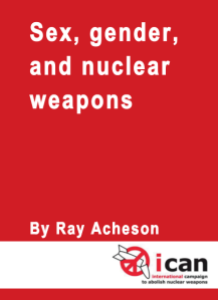To All EU Parliamentarians
We started our meeting with a minute’s reflection on the terrible events in Paris last night, and our hopes for a future free from violence and hate.
We met today to discuss the use of wars to address political conflict, the acceleration of climate change and the ongoing environmental degradation which constitute the most profound challenges for our times.
We realize that these issues are inextricably linked. We may perish in the time to come, or we may flourish. Our work for human and planetary security is equally inextricably linked.
We recognised that women’s lack of human rights and the gendered perspective which equates strength and effectiveness with military spending and dominance excludes women and other people from authorative social and political roles in addressing these threats.
We recognise our own value, and the value and diversity of other people and consider that the right to life carries greater validity than that of borders, that peace is a human right, that our shared resources should be committed to meet human needs as a priority.
We are aware that these values are widely held, though not adequately represented in the fora where political decisions are made, and we ask European Parliamentarians to work together to ensure that these inextricably linked issues are responsibly addressed.
We ask you to consider some focus points identified in our discussions and respond.
Focus points
- Because millions of people are forcibly displaced by floods, windstorms, earthquakes or droughts, an intergovernmental process is required for their protection.
- Th control of borders currently involves a militarised response to these movements of people, which creates conflict.
- Military expenditure represents the greatest part of global expenditure and is rising beyond the point at which governments can meet the basic needs of the people they represent. This has a devastating impact on the resources available to tackle climate change.
- Competition within the military industrial complex excacerbates this problem and creates a culture of secrecy and threats which undermines responsible environmental co-operation and diverts resources away from human needs .
- There exists a severe lack of investment in open and accessible education for conflict resolution and resources to ensure human rights are met, which urgently needs to be tackled. This arises through lack of political will in the face of corporate interest.
- All security agenda must focus on the prevention of war and poverty and ensure that a a gender perspective and women’s participation, protection, and rights are included in disarmament conflict resolution and policy making settings. peacekeeping, policy-making, and reconstruction.
- Investment in the nuclear weapons industry, much of it hidden, diverts scarce monetary and skill resource away from human needs. This requires a commitment to immediate governmental action for global nuclear disarmament.
- Nuclear accident or deliberate detonation are likely to cause global famine and irreversible environmental degradation in non-nuclear-weapons states and across the world. It is essential for all governments to recognise that technology for nuclear weapons and power are interlinked and together pose an existential threat for the whole planet.
- Climate change is a major cause of resource shortages and conflict, in addition from tackling the causes, it is increasingly urgent that energy and food can be produced locally to minimise the effect of shortages.
- Corporate and commercial influence over health care, and dependence on fossil fuels prevent governments from applying criteria that are in the best interests of those receiving the care. Commercial data protction laws require a level of secrecy that is not compatable with democracy.
From The Autumn Seminar Participants,
WILPF Autumn Seminar,
Orpington, England 14 November 2015





You must be logged in to post a comment.